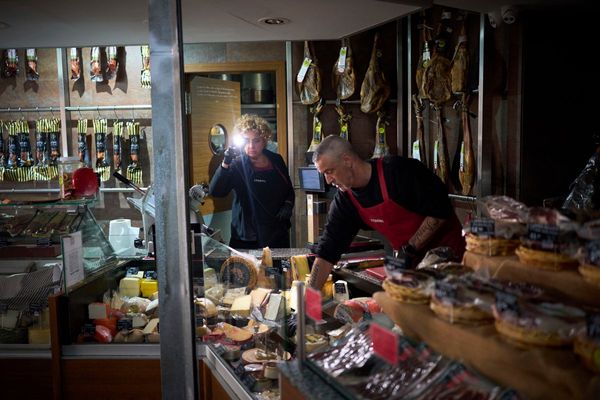
The NSW Bar Association has called on the NSW government to drastically cut the rate of Indigenous incarceration and make cells safer after the death of an Aboriginal man at Shortland Correctional Centre.
A state coronial report released on Friday into the suicide of a 26-year-old Bunjalung and Yaegal man at the jail in November 2021 called into question the care the man had received from Corrective Services NSW.
The man, referred to in the report as RRC, told police after he was taken into custody that he "didn't want to live any more" because an apprehended domestic violence order would prevent him from seeing his beloved children.
On October 17, 2021, he self-harmed and was placed into a cell for continuous observation.
He was reviewed by a mental health panel the next day and discharged from a Corrective Services risk intervention team's management plan on October 19 before moving into a cell with his cousin, who said he seemed jovial in the days after his assessment.
"RRC was the man with the biggest smile on his face, but clearly it was masking his great sadness," the cousin told the coroner.
"I say this on reflection. I had no idea that he was suffering emotionally. RRC, I guess like a lot of young Aboriginal men, can mask their true feelings."
RRC later asked to be placed in a single cell because some had become available. His cousin felt that, in hindsight, they should have stayed in a cell together.
On November 1, a psychologist noted RRC was future-focused towards re-establishing contact with his children.
Five days later, he was found dead.
The president of the NSW Bar Association, Gabrielle Bashir SC, said RRC's death highlighted that the government had to do more to implement reforms recommended in past inquiries.
"The Bar Association condemns another preventable death of a First Nations person in custody through an avoidable [cell design] that should not have been in the prison system," she said.
Ms Bashir said the Royal Commission into Aboriginal Deaths in Custody had highlighted the need for safer cell design more than two decades ago.
"Many inquiries have made similar recommendations since that time yet the death in custody that is the subject of this latest inquest occurred in November 2021," she said.
A parliamentary select committee had recommended a review and changes to cell design in April 2021.
The Bar Association said the review remained outstanding and many other key recommendations of that inquiry were yet to be addressed.
"While the NSW Bar welcomes the Deputy State Coroner's recommendations for Corrective Services NSW to look elsewhere for best practice with regard to risk intervention teams and alternative models, urgent action is required on behalf of government," Ms Bashir said.
"The rate of deaths of First Nations adults in custody in NSW remains unacceptably high.
"Despite the NSW government pledge to cut the rate of First Nations adult incarceration by 15 per cent by 2031 and by 30 per cent for minors aged 10 to 17, the most recent BOCSAR figures [in June] show the number of First Nations adults in prison is increasing.
"The remand custody population for Aboriginal young people rose 87.8 per cent from December 2021.
"The data shows how much harder the NSW Government needs to work to meet Closing the Gap targets, with all but two key indicators of Aboriginal over-representation showing increases at every stage of the NSW criminal justice system."
An independent review by associate professor Marlene Longbottom, included in the coronial report, found the mental health services lacked cultural competence and were not "culturally safe".
She found the Western tools used to assess mental health did not factor in the cultural needs of Aboriginal and Torres Strait Islander people and the power inequities between RRC and those responsible for his care prevented him from speaking openly about his mental state.
Ms Longbottom said Indigenous Australians placed strong emphasis on relationships with friends and family and noted RRC struggled with his disconnection.
Deputy State Coroner Carmel Forbes' findings also revealed he had been discharged without a plan for future care and cell placement.
"In hindsight, more could have been done to put in place protective measures for RRC when he returned to the wing and to continue his care and treatment," she noted.
Ms Forbes recommended Corrective Services NSW review the discharge process and assess whether it effectively reduces risk of further self-harm, consider the importance of continued care and whether alternative mental health models could be used, and consult the Aboriginal Medical Research Council for advice.







